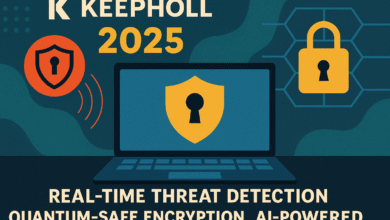How Educationbeing com is Revolutionizing Learning with AI

Artificial Intelligence (AI) is changing the world of education in powerful ways. It’s not just about customizing lessons anymore—it’s about making education open and available to all. Educationbeing com is a platform that highlights how AI is making learning fairer, smarter, and more accessible to everyone, no matter where they live or what language they speak.
Thanks to AI, students all over the world now have access to smarter learning tools. These tools offer better teaching methods, more interaction, and lessons tailored to each learner’s needs. Educationbeing com is helping people understand how AI breaks barriers in learning and brings educational opportunities to all corners of society.
What is AI in Educationbeing com?
Artificial Intelligence in the world of educationbeing com means using smart systems to support both teachers and students. These AI tools can do tasks like grading automatically, adjusting lessons based on student progress, and giving real-time feedback.
AI doesn’t just make things easier—it makes education smarter. At educationbeing com, this technology is used to give every learner a more personal and effective experience. AI even helps translate lessons into different languages, making learning smoother and more inclusive.
Reaching Global Learners through Educationbeing com
AI is breaking down long-standing walls in education, and educationbeing com is at the forefront of this transformation. By using smart technologies, this platform ensures that learning is not limited by geography, language, or time.
1. Removing Distance Barriers
No matter where students live—city or village—they can now access learning resources online through educationbeing com. AI helps deliver content straight to students’ devices, so there’s no need to sit in a classroom to learn. This makes education reachable to anyone with internet access.
2. Real-Time Language Translation
Language differences used to stop many people from learning. But now, AI translation tools on educationbeing com let students study in their own language. These tools instantly translate lessons and explanations, helping students understand better and feel more included.
3. Learn Anytime, Anywhere
With AI-powered systems, learners can study when it suits them best. Whether it’s early morning or late at night, educationbeing com gives 24/7 access to learning tools and materials. This flexible system supports all types of learners.
AI Makes Learning in Native Languages Easier
Many students struggle with learning in a second language. Educationbeing com uses AI to fix this. Real-time translation allows students to receive lessons in their native language, making learning easier and more comfortable.
Vernacular Learning Made Simple
Complex topics used to be available only in major languages. But AI now translates advanced subjects into many local languages. This means students can learn deeply in a language they understand. Educationbeing com supports this goal of equal learning for all.
Personalized Learning with Educationbeing com
Every student learns differently, and educationbeing com embraces that. AI helps deliver personalized lessons based on each learner’s needs, pace, and preferences. This makes learning more engaging and effective.
Smart Testing Tools
AI tailors test questions based on student performance. Unlike traditional exams, which are the same for everyone, AI tests change based on how a student is doing. Educationbeing com uses this method to fairly assess and improve student learning.
| Traditional Exams | AI-Based Exams |
|---|---|
| Same test for everyone | Personalized for each student |
| Slower feedback | Fast and adaptive feedback |
| Rigid format | Dynamic and flexible questions |
AI-Driven Grading Systems at Educationbeing com
One of the biggest challenges for teachers is grading. Educationbeing com solves this with AI. Grading becomes faster, fairer, and more consistent.
1. Lighter Workload for Teachers
AI takes care of grading tasks, saving teachers time and effort. Now, teachers on educationbeing com can focus more on interacting with students instead of checking papers.
2. Bias-Free Assessment
Unlike humans, AI doesn’t have feelings or preferences. It grades based on set rules, ensuring every student is treated fairly. Educationbeing com uses this system to make sure assessments are honest and equal.
3. Speed and Accuracy
Grading by AI is quick and precise. Large sets of data are processed in seconds. Teachers get instant results, and students receive feedback without delay.
4. Quality Feedback
AI gives detailed suggestions based on student performance. Educationbeing com uses this to guide students in the right direction. This kind of feedback helps learners grow steadily and understand their strengths and weaknesses.
Training Future-Ready Students
The future demands digital skills, and educationbeing com helps students prepare. AI tools teach important abilities like coding, analyzing data, and solving problems.
| Skill | Advantage |
|---|---|
| Coding | Builds logical thinking |
| Data Analysis | Strengthens decision-making skills |
| Problem-Solving | Encourages creative thinking |
Smarter School Applications with Educationbeing com
Applying to schools can be hard. But educationbeing com makes it easier with AI. Smart systems help match students with schools and streamline the application process.
Matching Learners with Right Schools
AI analyzes a student’s goals and strengths. Then, it suggests schools that fit. This ensures that students find the best environment for their growth. Schools also benefit by admitting students who are a good match.
Making the Process Easier
Application forms and documents are sorted quickly by AI. This reduces errors and saves time. With educationbeing com, the process is smoother for both students and schools.
Personalized Application Guidance
AI also offers personalized advice during the application process. Based on learning preferences, it helps students make better education decisions.
Making Education Inclusive with Educationbeing com
AI brings all students into the learning circle, regardless of their abilities or backgrounds. Educationbeing com is committed to making education accessible to everyone.
Helping Students with Disabilities
Text-to-speech and speech-to-text tools powered by AI allow disabled learners to access educational content with ease. Educationbeing com uses these tools to make sure no one is left out.
Supporting All Learning Styles
Some students learn visually, while others prefer audio or hands-on practice. AI adapts the format of lessons to match the learner. Educationbeing com ensures that all types of students get what they need.
Filling Educational Gaps
In underserved areas, resources are often limited. AI provides learning materials and support that students may not otherwise have. This helps reduce education inequality.
Inclusive Language Support
AI can translate lessons into multiple languages. Educationbeing com uses this to ensure that students from different language backgrounds all have the same opportunity to learn and succeed.
Conclusion
Artificial Intelligence is not just improving education—it’s transforming it. Educationbeing com is leading the way in showing how AI can make learning inclusive, accessible, and personalized. From grading systems to language tools, AI is helping students learn better and teachers work smarter. By removing obstacles and offering flexible, fair, and smart solutions, educationbeing com is shaping a future where everyone can learn without limits.
FAQs
Q1: What is Educationbeing com?
A1: Educationbeing com is an online platform that uses AI to improve education for everyone. It focuses on making learning accessible, personalized, and inclusive.
Q2: How does AI help with grading on Educationbeing com?
A2: AI speeds up grading, removes bias, and provides detailed feedback. It helps teachers save time and gives students instant results.
Q3: Can Educationbeing com help students in remote areas?
A3: Yes, it allows students to access lessons from anywhere, removing distance and time barriers.
Q4: Does Educationbeing com support different languages?
A4: Yes, it uses AI translation tools to help students learn in their native language.
Q5: What skills can students learn with AI tools on Educationbeing com?
A5: Students can learn coding, data analysis, problem-solving, and more essential skills for the future.
Read also: Your Trusted Tech Companion: Insights from SeveredBytes.net Blog


